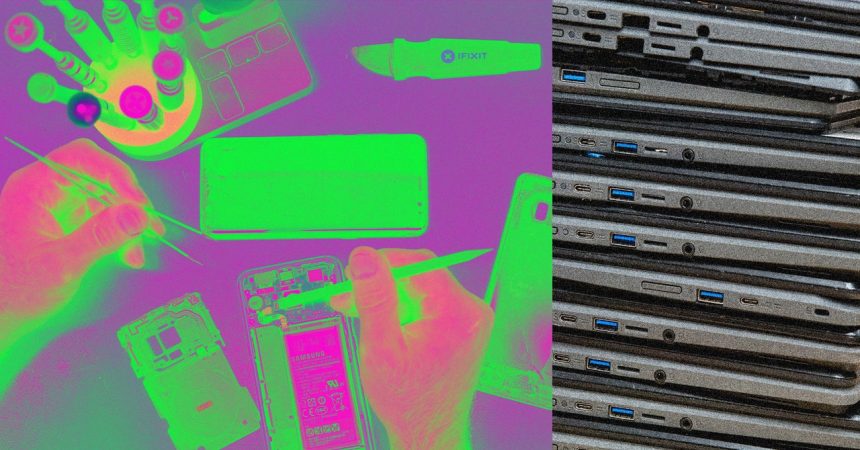Christopher Tidy’s early fascination with engineering began at the age of ten when he disassembled a carburetor, discovering its inner workings and tackling a mess of congealed fuel. His determination to understand and repair the engine components ignited his lifelong passion for tinkering and innovation. Armed with some tools and a curious mind, Tidy transformed that first messy experience into a rewarding project—restoring the carburetor and eventually selling it. This initial encounter exemplified his aptitude for problem-solving and set the foundation for his later endeavors, which increasingly focused on the implications of product repairability in a world overwhelmed by waste and disposability.
As environmental concerns rise, the issue of product repairability has gained significant traction, with activism from organizations like iFixit and PIRG advocating for better accessibility to repairs. In response, regulatory steps have been taken, notably by the European Union, which introduced legislation to promote user-repairable devices. Major tech companies, including Apple and Samsung, have begun implementing repair programs, but these measures remain insufficient. The reality is that consumers often resort to discarding broken items rather than seeking repair options. Tidy recognizes this challenge and aims to contribute to a cultural shift that emphasizes the importance of reusability and repair, tackling the issue at the design stage.
Drawing from a diverse career in engineering and academia, Tidy has honed his skills and insights into product repairability. After earning a degree in mechanical engineering from Cambridge University, he embarked on a professional journey that took him across several countries and institutions, including teaching and working on various technological projects. His experiences not only provided him with technical knowledge but also revealed the complexities inherent in product design, particularly concerning sustainability and longevity. Lately, Tidy has focused his efforts in Ladybrand, South Africa, where he operates a volunteer repair workshop aimed at fostering a community-centered approach to fixing everyday items.
Tidy’s workshop serves as a testament to his commitment to promoting repairable product design. Through this initiative, he encourages a mindset shift from a disposable culture to one that values longevity and sustainability. His encounters with individuals looking to repair their everyday gadgets reinforce his belief that small, community-driven efforts can lead to significant change. Since establishing this space, Tidy has developed innovative ideas intended to inspire designers to create a new generation of products that are inherently easier to repair. This shift requires a delicate balancing act between market demands and a focus on long-term sustainability.
Central to Tidy’s vision is a manifesto that champions the creation of durable and easily repairable products at the outset of the design process. He articulates that many designers and engineers often face conflicting pressures—namely, consumer preferences, production speed, and cost efficiency. In such a competitive landscape, considerations regarding repairability are frequently deprioritized, leading to unsustainable practices that exacerbate waste. By advocating for a design philosophy that inherently prioritizes repair, Tidy seeks to align the interests of consumers and manufacturers toward a shared goal of sustainability and responsible product lifecycle management.
Ultimately, Christopher Tidy’s journey from childhood curiosity to professional advocacy highlights the critical need for a systemic change in how products are conceived and developed. His work exemplifies the potential for grassroots movements and community initiatives to challenge the status quo of consumerism and promote repairable product design. In a world where waste is an ever-growing concern, these efforts to reshape product design from the ground up have the power to significantly impact both environmental sustainability and human creativity, bringing forth a new era of mindful consumption and resourcefulness.



